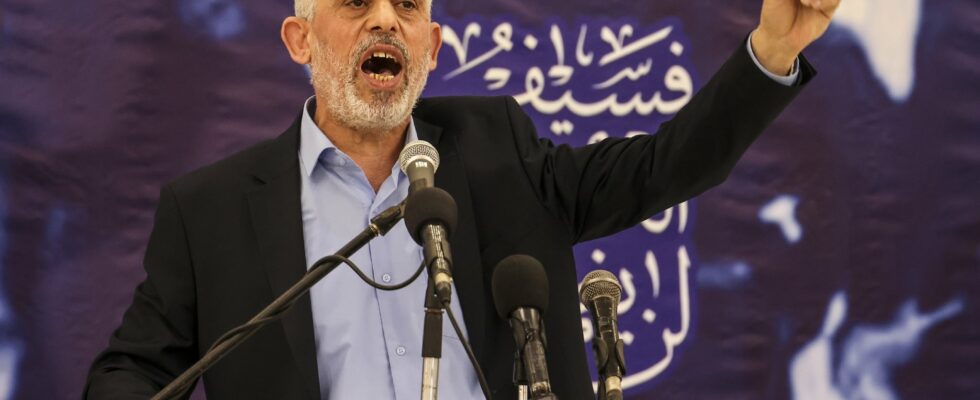The IDF is not giving Hamas any respite. Israel promised on Wednesday, August 7, to eliminate the new leader of the Palestinian Islamist movement, Yahya Sinwar, at a time when the war in the Gaza Strip, now in its eleventh month, threatens to spread across the Middle East.
Yahya Sinouar was appointed leader of the Islamist movement on Tuesday evening to replace Ismail Haniyeh, whose assassination on July 31 in Tehran was attributed to Israel by Iran, which has promised reprisals.
Israel accuses this radical militant, until now leader of Hamas in the Gaza Strip, of being one of the masterminds of the unprecedented attack carried out on October 7 by the Palestinian Islamist movement on Israeli soil, which triggered the war. Hunted by Israel, Yahya Sinwar, whose movement is considered a terrorist organization by the United States, the European Union and Israel, has not appeared in public since October 7. “We will increase our efforts to find him, to attack him,” declared the head of the Israeli army, Herzi Halevi, on Wednesday.
While all attempts at mediation have failed, the war, which Hamas says has left nearly 40,000 dead in the small besieged Palestinian territory, has rekindled tensions in the Middle East between Iran and its allies, including Lebanon’s Hezbollah, and Israel. These tensions have redoubled following the assassination of Ismail Haniyeh and that of Fouad Shokr, the military leader of Hezbollah, an ally of Hamas, who died on July 30 in an Israeli strike near Beirut.
Diplomatic contacts
Hezbollah and Iran are “obliged to retaliate” to these two assassinations, the head of the Lebanese armed movement, Hassan Nasrallah, said on Tuesday. Hezbollah will retaliate “whatever the consequences,” he warned. The Israeli army also announced on Thursday that it had killed a Hamas official, Nael Sakhl, in the Gaza Strip on July 24, whom it accuses of having “directed terrorist attacks” in the West Bank.
Faced with the risks of an extension of the war, the international community is trying to find ways to calm the situation and relaunch negotiations with a view to a ceasefire associated with the release of the hostages held in Gaza. Diplomatic contacts are increasing, particularly between the mediating countries, the United States, Qatar and Egypt. “We believe that we have never been so close” to an agreement, said the spokesman for the National Security Council of the American presidency, John Kirby, on Wednesday.
The head of American diplomacy, Antony Blinken, whose country is Israel’s main ally, asked Iran and Israel the day before to avoid a military “escalation”. French President Emmanuel Macron also urged Tehran to “get out of the logic of retaliation”, believing that a new escalation “would be of no interest to anyone”. He also “called on the Israeli Prime Minister to enter into the same logic” and to “avoid a cycle of retaliation”. Iranian President Massoud Pezeshkian asked Western countries to stop supporting Israel to “avoid” a regional war.
After ten months of war, the Israeli army is continuing its land and air offensive against Hamas, which has been in power in Gaza since 2007, particularly in areas it had claimed to have taken control of but where fighting has resumed. The army announced on Wednesday that it was continuing its operations in the centre of the territory and had “eliminated many terrorists”.
